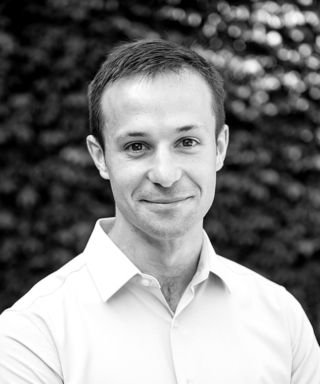Science has reached a new frontier where ideas once confined to the pages of science fiction seem to be within our grasp. How should Christians think critically about human enhancement, artificial intelligence, and emerging technologies, and do they challenge the biblical picture of what it means to be human?
Brain chips can improve cognitive function. Synthetic blood increases strength and endurance. Gene editing (CRISPR) was successfully used to eradicate disease, but may also be used for creating designer babies or supersoldiers. Should we increasingly move from therapeutic use of technology towards human enhancement? Can we justify genetically “reorienting” people away from violent tendencies or socially unacceptable behaviour? What are the social justice implications of enhancement technology that could lead to “unenhanced” people experiencing prejudice?
Please join us in the new series of ISCAST–NZCIS Conversations as we are led by specialists to explore these questions, and the intersection between visions of the future and the Christian faith.
Thursday 8th Sep 2022 @ 6:30 pm –
Thursday 10th Nov 2022 @ 7:30 pm
Online
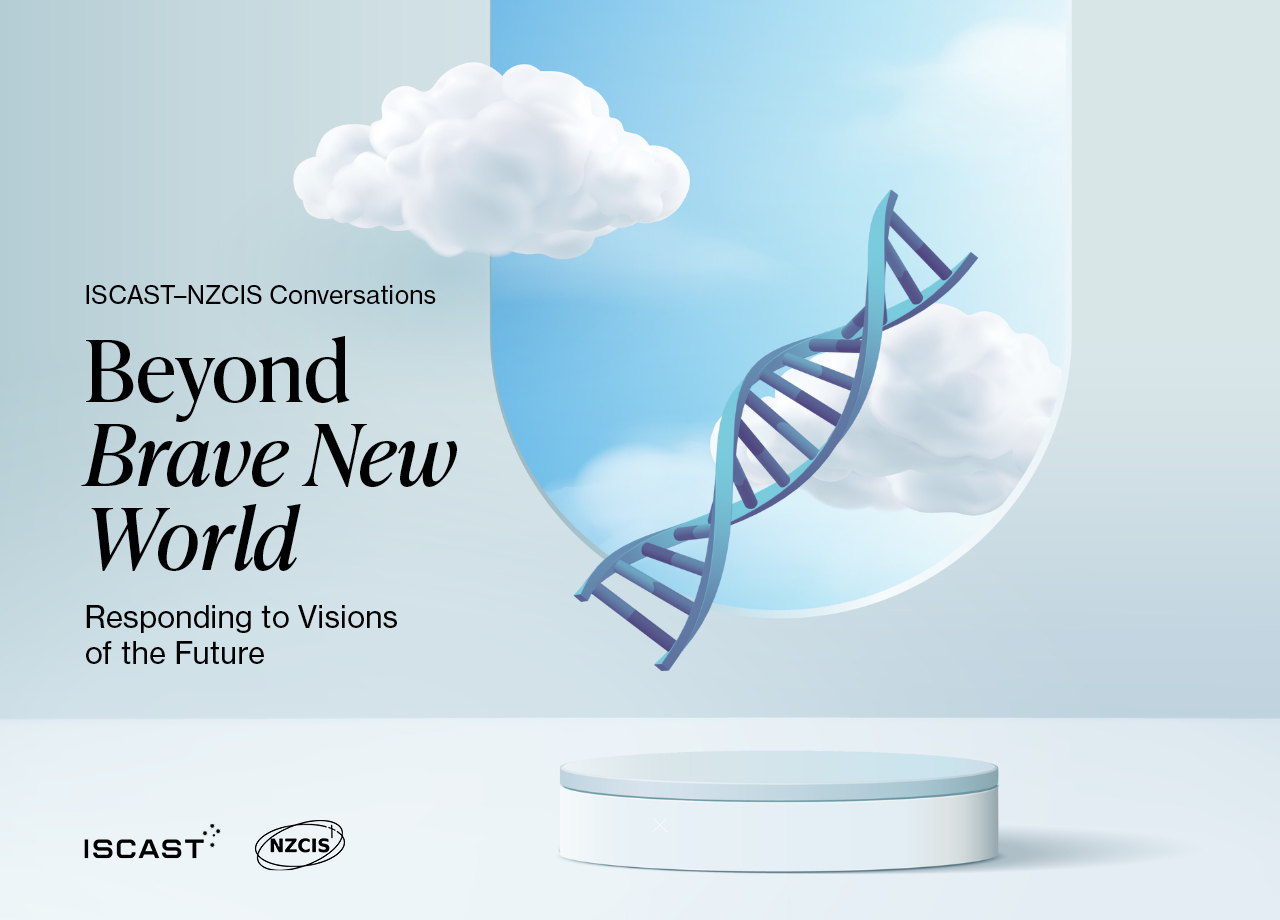
The ISCAST–NZCIS Conversations are back for a second series in 2022! Join us for 10 weekly online conversations from the 8th of September to the 10th of November. This time, we’ll be discussing the Christian response to visions of the future, including artificial intelligence and emerging technologies.
DETAILS:
- Thursday nights from 8 September until 10 November
- Starts 6.30 p.m. AEST or 8.30 p.m. NZST
- Presentation: 30 minutes
- Discussion & Questions: 30 mins +
PRICES:
This one-off fee will cover the cost of attending all the conversations.
- $25 for ISCAST and NZCIS members
- $50 for non-members
- $10 for student/concession non-members
- FREE for student/concession members of ISCAST or NZCIS
About the ISCAST–NZCIS Conversations
Since 2020, ISCAST and New Zealand Christians in Science have run the Conversations series, with an aim to promote a dialogue between the sciences and the Christian faith. Experts are invited to speak on their topic, which is then followed by a Q&A and discussion.
“The result of the Conversations for me is that theology and science together now truly inform my worship—no doubts, no niggles, no uncertainty.”
“New subjects and old ones, presented brilliantly.”
A Comment on Diversity
ISCAST and NZCIS recognise the importance of representing a diverse range of voices in the science–faith conversation. In preparing for events, we strive to invite speakers from different backgrounds, ages, and genders to offer a range of enriching perspectives.
We acknowledge that this particular series of conversations is white-male-dominated. This may be a reflection of the current topic, or of the general membership of ISCAST and NZCIS.
We have been working to rectify this historic imbalance, and we warmly welcome your thoughts and ideas. Get in touch with Chris Mulherin (ISCAST Executive Director) at ChrisMulherin@iscast.org or 0421 330 380 or Nicola Hoggard Creegan (NZCIS Co-director) at hoggard.n@gmail.com +64 21376045.
Speakers & Topics
The Times They Are a Changing – At an Exponential Rate
8 September
Pete Armstrong
Pete Armstrong is a power systems engineer and senior manager, qualified with a Bachelor of Electrical Engineering from the University of Canterbury and a Master of Business Administration from the University of Waikato. He has 29 years of electricity industry experience, working in generation, transmission, distribution in New Zealand and consulting both in NZ and internationally. He is currently General Manager – Network for EA Networks, the distribution network in the Ashburton District, NZ. He has a strong interest in power sector economics, disruptive new technologies, and advancing decarbonisation using renewable electricity. He has been a Board Trustee of A Rocha Aotearoa NZ since 2021.
Description
Pace of change in our society and in technology is rapid, and in some transformational cases, will be exponential. Exponential change is fuelled by breakthrough technologies and economic advantage, which accelerates the rate of uptake and transforms aspects of our society and how we use technology. Like an exponential curve, the rate of uptake is initially low and linear until reaching a breakthrough point where the uptake rapidly and exponentially rises.
We are seeing examples of exponential technology change in AI and autonomous vehicles, with manufactured food being a likely further change in the longer term. The economic motivation for automation via AI is strong, has rapidly been adopted in our society, but longer term has significant implications for the future of work, people maintaining livelihoods and viability of the economy. Autonomous vehicles and Transport as a Service (TaaS) involves fleets of EVs providing point to point personal transport that in metropolitan areas would offer a significant economic advantage of not needing to own a car. The technology to implement TaaS is essentially developed now. Manufactured food techniques (Food as Software) allowing food to be generated from constituent ingredients in reactor vessels is a coming technology that could revolutionalise the economics and drastically reduce the environmental impact of food production. The potential downside to farming-specific economies could be significant, but potentially compensated for by higher disposable income from lower food costs and the environmental upside.

Transforming Our Thinking
15 September
Jonathan Gunnell
Jonathan Gunnell is an engineer working in major civil and mining infrastructure, currently at an innovation hub with emerging technologies. He has been a board member of the Christian Transhumanist Association since 2014, and attends Bardon Anglican Church in Brisbane. He is fluent in Spanish and most dialects of Christianese.
Description
We stand on the cusp of several medical revolutions, and concepts previously science fiction such as brain-computer interfaces, emulations of human minds, and treating ageing as a disease are now mainstream.
Humans have actively cultivated the genome of many species, mostly through breeding but also with genetically modified organisms. The question becomes if, and if yes, then how then should we manage our own genome in future?
The application of these technologies must enhance humanity holistically, and be available to all, not just the elite. Such technologies should be controlled in accordance with the principles of God’s rule over individual human hearts. Defining the goals of transformative technology in terms of the Christian expectation of transformation ‘from glory to glory’ will bring Christian spirituality back into mainstream thought.
Artificial Intelligence and What It Means to Be Human
22 September
Neil Dodgson
Neil Dodgson is Professor of Computer Graphics and, since 2019, Dean of the Faculty of Graduate Research at Victoria University of Wellington. He has oversight of the 1500 research students across all the University’s disciplines. He has an undergraduate degree in mathematics, physics, and computer science from Massey University, New Zealand. He spent 27 years in Cambridge, England, first as a PhD student, then as a member of academic staff, eventually becoming Deputy Head of the Department of Computer Science and Technology in 2010. He was a Fellow of Emmanuel College, Cambridge from 1995 to 2016.
Description
Artificial intelligence has been around since the 1940s but it is only in the last decade that it has really taken off, with the development of deep neural network techniques inspired by the structure of the human brain. Today, artificial intelligence is used to diagnose cancer, recognise speech, and identify people in a crowd. In the next decade artificial intelligence will develop to do so much more. This leads to two interesting intersections with a Christian worldview. One is the philosophical: “Can a computer think?”, “Can a computer have personhood?” The other is the practical: “What is the Christian response to the changes and challenges that artificial intelligence will bring to society?”
I briefly explain what underlies the success of modern artificial intelligence and explore the ways in which it resembles and differs from human and animal consciousness. I lay out some of the challenges that artificial intelligence is bringing to our world and suggest some questions that we will need to answer if we are to fulfil our potential as humans in a world with artificial intelligence.
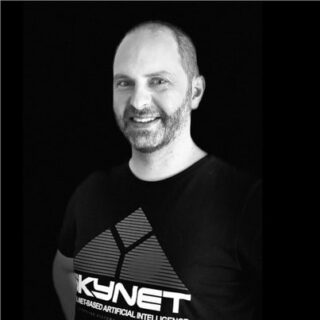
Human-Machine Teaming: Insights from a Drone Program Manager
29 September
James Garth
James Garth is an aeronautical engineer and ISCAST fellow who is fascinated with all things technological, especially if they fly. He has worked in the industry for over two decades, with ten years on tactical and small Unmanned Aerial Systems.
Description
In this session James will have a conversation with Chris Mulherin (ISCAST Executive Director) about HUM-T or human-machine teaming. HUM-T involves humans and machines working together with “trusted autonomy” to achieve outcomes that neither the human nor the machine could achieve alone.
Spiritual Technologies: Can Faith and Morality Be Enhanced?
13 October
Victoria Lorrimar
Victoria Lorrimar is Lecturer in Systematic Theology at Trinity College Queensland (Australian College of Theology). She holds an Honorary Fellowship with the Institute for the Advanced Study of the Humanities at the University of Queensland and has previous qualifications in science (genetics and biochemistry) and theology. She has worked in government policy and project management roles in science and innovation, and research and clinical roles in neurodegenerative disorders.
Victoria’s research interests include the intersection of science and technology, theology, philosophy, and literature. Her recent book Human Technological Enhancement and Theological Anthropology (Cambridge University Press, April 2022) explores theological responses to the prospect of human technological enhancement, focusing on the role of the imagination in developing and assessing visions of future human existence.
Description
People are increasingly looking outside of traditional religion for meaningful spiritual experiences and a sense of purpose. A range of prospective technologies target human spirituality and morality as sites for enhancement, whether through pharmaceutical or neural augmentation. Advocates for moral enhancement such as Ingmar Persson and Julian Savulescu argue that the human psychology and morality that has developed through evolutionary pressures is no longer fit for purpose in the advanced technological and crowded societies most of us live in today. As traditional approaches to moral education have had only limited success, Savulescu and Persson argue that global environmental catastrophe can only be avoided through biomedical means of moral enhancement. This presentation will examine some of the visions of technological enhancement in the domains of both morality and spirituality, and it will consider how Christians might respond.
 Lab Grown Human Embryos: The Brave New World of iBlastoids
Lab Grown Human Embryos: The Brave New World of iBlastoids
20 October
Gareth Jones
Gareth Jones is a fellow of ISCAST, and the Emeritus Professor of Anatomy in the University of Otago, Dunedin, New Zealand. For many years he was Head of the Department of Anatomy at Otago, following which he served as Deputy Vice-Chancellor (Academic), and then Director of the Bioethics Centre. The early part of his career was spent at University College London, followed by a number of years at the University of Western Australia.
He continues with his writings at the interface of anatomy and ethics, and continues to strive to integrate his Christian conceptions with his commitments in biomedical science. He has covered a range of bioethical issues, e.g. reproductive technologies and ways of dealing with the dead human body. His 1984 book Brave New People was especially controversial, after which he reflected on ways of approaching controversial topics from a biblical perspective in his book Coping with Controversy. He has also recently published At the Margins: A Life in Biomedical Science, Faith, and Ethical Dilemmas (Resource Publications, Wipf and Stock, 2022).
Description
The well-worn debate of when, after fertilisation (conception) the developing human acquires the status of a person is set to take on new dimensions when fertilisation no longer requires an egg and sperm. This is a consequence of the advent of synthetic embryos that result from mixing induced pluripotent stem cells (derived from adult tissue) with chemicals capable of coaxing them to form spherical structures, iBlastoids. These resemble early human embryos that contain cell types related to all the founding cell lineages of the foetus and its supporting tissues. Whether such embryos are ever allowed to develop further remains to be seen—and will be dependent upon scientific expertise and political will. But should this scenario ever eventuate, will such artificial blastocysts have the status of human persons?
What principles are to be found in scripture that will throw light on these exciting and forbidding prospects? And will these in turn help us assess the status of naturally fertilised embryos?
 Enhancing Medicine: Is Human Enhancement a Proper Task for Medicine?
Enhancing Medicine: Is Human Enhancement a Proper Task for Medicine?
27 October
Andrew Sloane
Andrew Sloane is a Fellow of ISCAST and has medical and theological training.
Andrew is Senior Lecturer in Old Testament and Christian Thought, and Director of Research at Morling College. He teaches in the areas of integration of faith and work, OT exegesis (Genesis, Deuteronomy, 1&2 Samuel, Ezekiel, Psalms), OT interpretation, philosophy of religion and bioethics. Andrew qualified in medicine and practised briefly as a doctor before going into Baptist ministry. Prior to moving to Morling, he taught at Ridley College in Melbourne (1996–2002). He has published in Old Testament and hermeneutics, ethics, philosophy, and theology. Andrew is married to Alison, and they have three adult daughters.
Description
If medicine ought to be an expression of a community’s care for vulnerable humans, and biomedical technology ought to be in the service of that care (as I think is the case), then whatever the theological and ethical status of human enhancement, it is not the proper task of medicine. Indeed, engaging in it would further medicine’s increasing captivity to both technological imperatives and commodification (another way in which technology and the market are colonising human personal and social existence, instrumentalising and commodifying the body itself).
COVID, Churches and Technology: How Churches Adapted to Online Ministry
3 November
Lynne Taylor
Lynne Taylor is the Somerville Lecturer in Pastoral Theology at Otago University, teaching in the areas of pastoral care, mission and ministry. Recently Lynne has researched how NZ churches responded to the COVID-19 pandemic—including how they supported the well-being of their congregations and wider communities. Her PhD explored why previously unchurched Australians are becoming Christians today. In addition, Lynne engages in research and consultancy work with AngelWings Ltd.
Description
Online church is not new and has been well-researched and theorised, previously in relation to religious communities that chose online platforms. During COVID-19, previously unthinkable adaptations (e.g. online services) were readily accepted by many churches as positive responses to a changing context. Some churches and leaders saw this change as an opportunity to reimagine the church’s form, encouraging ongoing agility and adaptation, while others returned quickly to onsite only ministry. This paper outlines how churches adapted to online ministry, and explores motivations for such ministry, before, during and after COVID.
 Narratives of Hope in the Face of Techno-apprehension
Narratives of Hope in the Face of Techno-apprehension
10 November
Stephen Garner
Stephen Garner is Academic Dean and Senior Lecturer in Theology at Laidlaw College. He teaches primarily in the area of practical and contextual theology, and his research focuses upon theology in dialogue with science, technology and new media, as well religion, media and popular culture. His current research projects include: theological ethics and social media; angels in popular culture; theological education and digital technology; and video games and spiritual formation. His most recent book (co-authored with Heidi Campbell) is Networked Theology: Negotiating Faith in Digital Culture (2016). Stephen is married to Kim with four children and they worship at Massey Presbyterian Church.
Description
Dystopias often feature in our visions of the future, where human technological possibilities create distinctly inhumane worlds. These visions can leave us with both a sense of wonder at what we can achieve with science and technology, as well as a deep sense of apprehension or anxiety about those very same achievements. And yet, Christians are called first and foremost to be people of hope, compelling us to ask what that means in our technological present and futures. Reflecting on theological visions of the future and on other presentations in this series, this conversation will look at how our technological choices must strive to do not only no evil or harm, but also to fulfil a vocation of doing good. Picking up themes of co-creation, appropriate technology, and reflections on human personhood and the world around us, Stephen will encourage us, as both Christians and human beings, to wholesome and hopeful technological choices.
Why Conscience Matters
17 November, 8 p.m. AEDT or 10 p.m. NZDT
Xavier Symons
Xavier Symons is a Postdoctoral Research Fellow at the Human Flourishing Program at Harvard University’s TH Chan School of Public Health. His research interests include the philosophy of medicine, spirituality and health, and moral psychology.
Description
Conscience is an idea that has significant currency in liberal democratic societies. Yet, contemporary moral philosophical scholarship on conscience is surprisingly sparse. This presentation offers an account of the role of conscience in moral life. I argue that conscience at the most basic level is concerned with a personal engagement with morality and that an absence of conscience is equivalent to an absence of moral consciousness. I also explore how conscience is formed, and how we can promote the cultivation of conscience in the professions.
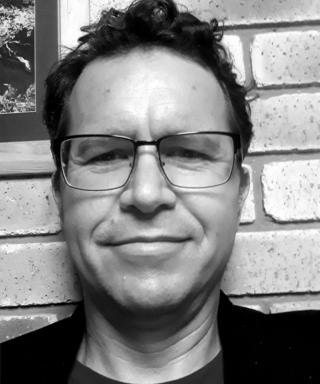
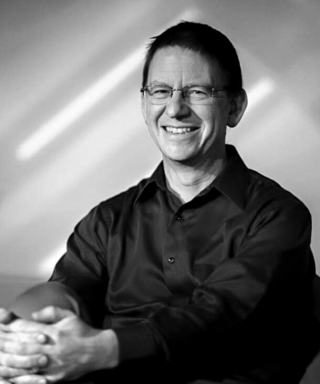
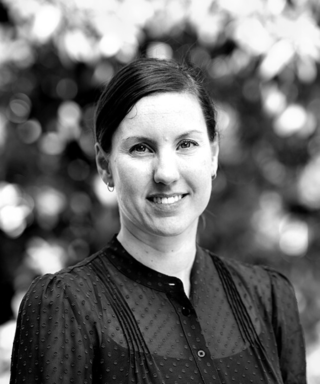
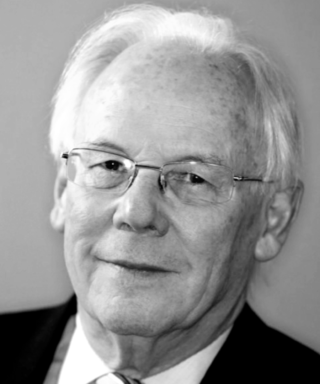 Lab Grown Human Embryos: The Brave New World of iBlastoids
Lab Grown Human Embryos: The Brave New World of iBlastoids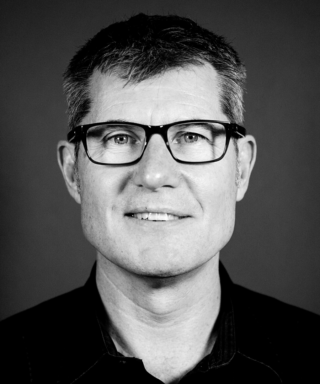 Enhancing Medicine: Is Human Enhancement a Proper Task for Medicine?
Enhancing Medicine: Is Human Enhancement a Proper Task for Medicine?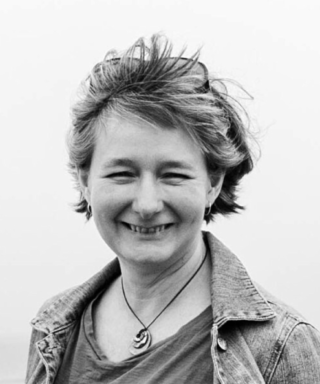
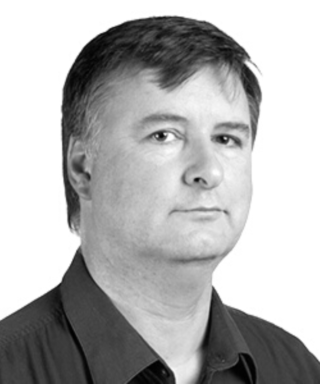 Narratives of Hope in the Face of Techno-apprehension
Narratives of Hope in the Face of Techno-apprehension